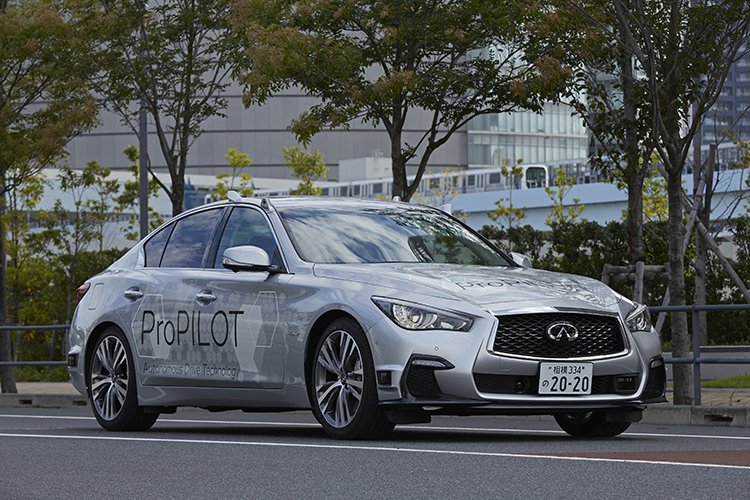Nissan tests fully autonomous prototype technology on streets of Tokyo
; Date: October 26, 2017
Tags: Nissan »»»» Self Driving Cars
In the 4+ years since BMW started mass production of the BMW i3, sales have reached nearly 100,000 electric and plug-in-hybrid BMW i3's, and yearly production capacity stands at around 25,000 vehicles. By comparison, that is one quarter of Tesla's production capacity for the Model S and Model X, meaning that Tesla Motors has achieved a faster production growth velocity than BMW. In any case the BMW i3 is a fine electric car, and BMW has achieved a significant milestone.
One step taken to mark the occasion is innauguration of a second-life battery facility at the BMW i3 factory in Leipzig. The phrase "second life" means that after a battery pack's first life as the traction battery in a car, it can be repurposed as an energy storage unit.
What happens to an electric car battery pack that's depleted to 80% usable capacity? That battery still has significant usable capacity, and can be reused. In theory. Hence the "second life" concept.
The facility being built by BMW will hold 700 BMW i3 battery packs, some recycled from old cars, the others from newly produced packs. It is to be paired with wind turbines on the site, to time-shift some of the electricity produced by those turbines to being used at other times of day.

Public road demonstration of next-generation ProPILOT technology shows significant advancement
TOKYO – Nissan today demonstrated a prototype of its most advanced autonomous driving technology, planned for real-world use from 2020, on public roads in Tokyo.
Nissan Motor Corp. tested the next-generation ProPILOT technology on a modified INFINITI Q50 sports sedan. The technology enables the vehicle to operate autonomously on urban roads and freeways, beginning when the driver selects a destination using the navigation system, until arrival.
The prototype’s artificial intelligence uses input from 12 sonars, 12 cameras, nine millimeter-wave radars, six laser scanners and a high-definition map to analyze complex scenarios in real time and navigate smoothly through challenging city conditions – such as crossing busy intersections. These hardware upgrades, along with software improvements, also ensure smooth transitions when encountering obstacles in the road. This results in a human-like driving feel that gives passengers peace of mind.
“Ingenuity is at the heart of everything we do at Nissan,” said Takao Asami, Nissan’s senior vice president in charge of research and advanced engineering. “Our next-generation ProPILOT prototype showcases technology that will be available for real-world use from 2020. Today’s demonstration is another example of our successful work toward creating an autonomous driving future for all.”
The demonstration follows the recent launch of the new, zero-emission Nissan LEAF, equipped with ProPILOT technology that enables single-lane autonomous driving on highways. Nissan’s growing lineup of models with ProPILOT also includes the Nissan Serena, X-Trail and Rogue and will be joined by the Qashqai in 2018.

